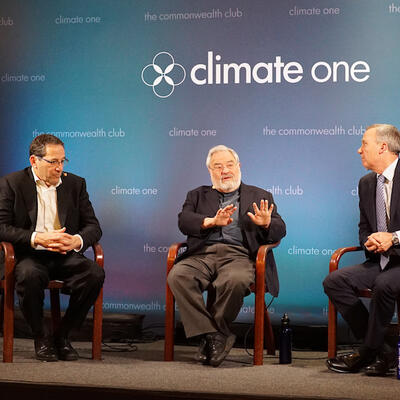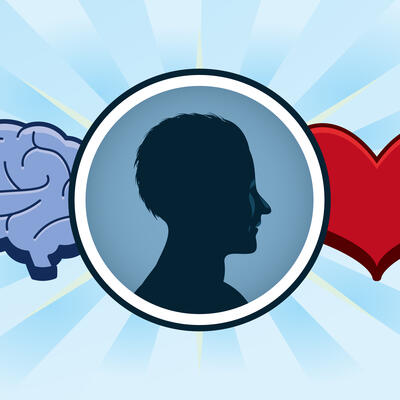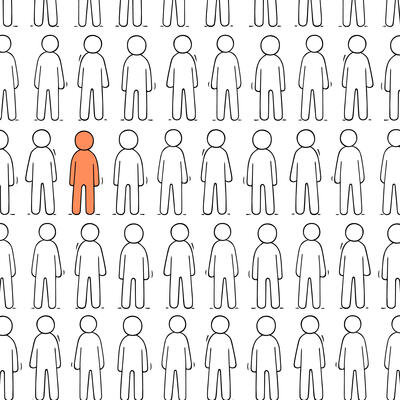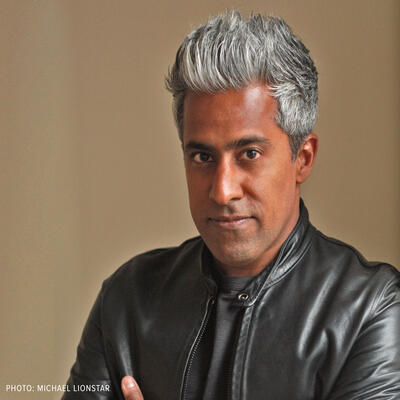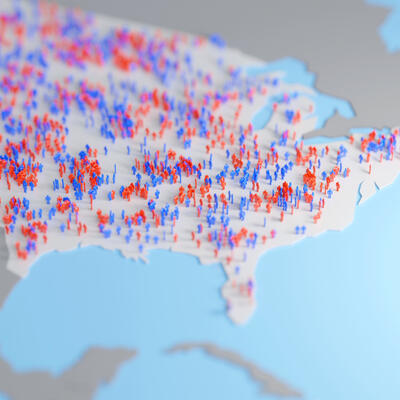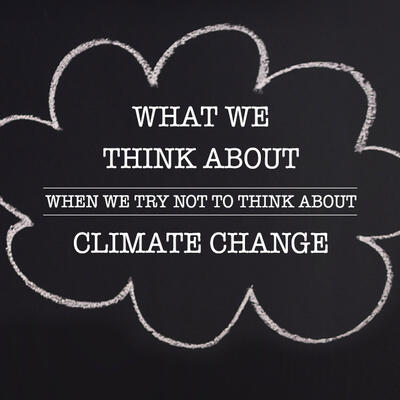
Climate Cognition
Guests
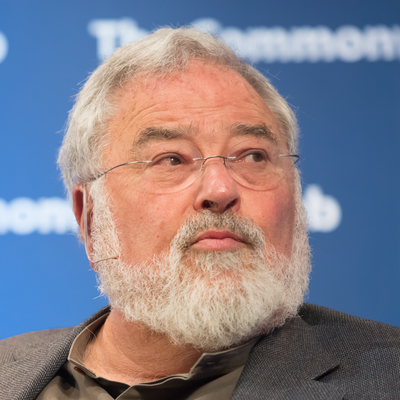
George Lakoff
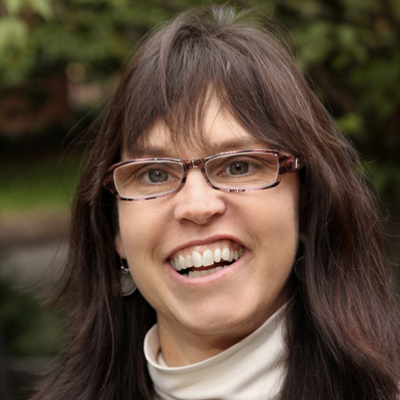
Kari Norgaard
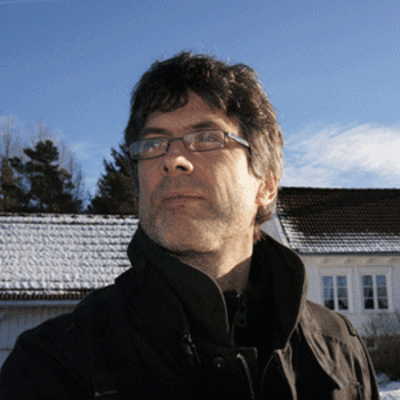
Per Espen Stoknes
Summary
Sure, there are climate deniers – but even those who accept global warming as reality often fail to act on it. What will inspire both awareness and change?
George Lakoff, Professor of Linguistics, UC Berkeley; Author, Don’t Think of an Elephant! Know Your Values and Frame the Debate (Chelsea Green, 2004)
Kari Norgaard, Associate Professor of Sociology, University of Oregon; Author, Living in Denial: Climate Change, Emotions and Everyday Life (MIT Press, 2011)
Per Espen Stoknes, Economist; Psychologist; Author, What We Think About When We Try Not to Think About Global Warming (Chelsea Green, 2015)
Full Transcript
Greg Dalton: I’m Greg Dalton. And today on Climate One, we’ll talk about climate change and you. Your brain, your emotions, your family and your neighbors, we’re gonna talk about a global issue in a personal way. Evidence that humans are frying the sky and driving wild weather has mounted in recent years, yet most people and countries are going about business as usual. If a child swimming in a lake was waving for help, bystanders would be diving in the water. Scientists are pleading for help, but most people are strolling on the boardwalk licking at ice cream cones with sprinkles on top. Sure, Americans are eating less meat, driving cleaner cars and putting solar on their rooftops. But society’s response is not at the scale or the speed required to protect the climate that supports the economy.
Over the next hour, we’ll discuss climate denial and the psychology and sociology of building a clean energy future. Joining our live audience at the Commonwealth Club in San Francisco, we’re pleased to have with us three social scientists who come at the carbon challenge from a different perspective. Per Espen Stoknes is an economist and psychologist and author of What We Think About When We Try not to Think About Global Warming. George Lakoff, is professor of Linguistics at UC Berkeley an author of many books including Don’t Think of an Elephant! Know Your Values and Frame the Debate. And Kari Norgaard, is Associate Professor of Sociology at the University of Oregon. She’s the author of Living in Denial: Climate Change, Emotions and Everyday Life. Please welcome them to Climate One.
[Applause]
Greg Dalton: Welcome all of you. I’d like to begin by asking you about your certain, your moment of climate awakening or epiphany. And Per Espen Stoknes, you begin your book talking about a particular moment when you committed your professional life to more climate action. Tell us about that.
Per Espen Stoknes: Well, it’s a deeply, personal thing to dive into really. It was just after my divorce. And I delivered my kids back to my ex-wife in her new now apartment. I’m walking from there alone and all the dreams and the projects we’ve had together was kind of broken up. And I had been engaged in environmental and Eco philosophical issues for quite a few years, so it wasn’t new. But when I was walking down that hill, this was all slow, kind of chilly cold and you can see the moon hanging over the mountain or the buildings there and suddenly it just dawned up me that it was time to get serious on this issue and really dedicate myself to it.
So in a way, it came from a position of pain; maybe also recognizing the pain in the world or the deep grief that we can feel when we really tap into the destructions that are ongoing. So that opened my heart so to speak, and I co-founded the Center for Climate Strategies at Norwegian Business School together with Jorgen Randers author of Limits to Growth. And since we’ve been collaborating very closely on this issue.
Greg Dalton: And Kari Norgaard, in similar moment you did an experiment with some students and saw some very different emotional reactions to environmental where it kind of moved you more deeply in the climate direction.
Kari Norgaard: Yeah, it wasn’t so much an experiment, but I was teaching a class on environmental problems at University of Oregon quite a while ago. And I remember I showed a film that was, I don’t remember what the topic was but it was, you know, very poignant and one of my students was in tears and several students were very upset. And other students were sitting there, you know, as though, you know, kind of like the ice cream cone moment, nothing is happening. And the student who was really in tears was also very upset that no one else was reacting. These other students in the class not reacting. And, that sort of my attempts to try to explain to her got me thinking about how it is that we received and process really disturbing information, and the idea that in fact when information is really disturbing, one of our reactions can be to shut down. So when I can say things about climate change per se but that’s what got me going in the direction of the work I’ve done which is about how we respond to climate change.
Greg Dalton: George Lakoff, your first awareness of climate change. Was it a rational moment or an emotional moment, both?
George Lakoff: This was around 1972 or ’73. I had just come to Berkeley shortly before that. And a group at Berkeley had gone over the work coming out of the satellites showing that there was, there had been an increase of a degree in the atmosphere all over the earth.
And I’d been an MIT student, I remembered my course on thermodynamics and I said, “Oh my God, do you know how much heat that is in terms of a degree all over the earth?” Think of what that’s gonna do to the ice packs, think of what that’s gonna do to snowmelts, the rivers, you know, and I just went ahh! And this was in the 70s and there wasn’t the movement.
Greg Dalton: And since then the ensuing decades there’s been a lot of understanding, a mountain of evidence. Talking about climate change and yet Kari Norgaard, a lot of people just going about like well, it’s a long-term problem. The response is not commensurate with the challenge, why not, why aren’t we doing more with so much evidence?
Kari Norgaard: It’s, I mean, it’s an incredible situation. It’s the most serious, very complex problem, it’s threatening to, you know, our fossil fuel based economy, it’s threatening to our political systems because we haven’t been able to resolve it. It’s threatening to our sense of the future, meaning, cultural norms, so many different things. And you think about a threat that significant, that’s about the future, the idea of secure, ontological security. It’s not just -- you know, what do we even do, how would we respond? So it’s, we really, there’s -- the work I’ve done has been about emotions that are disturbing. The idea that especially for people in privilege nations like the United States, the guilt that comes up in association with thinking about climate change, fear about the future, a sense of helplessness. And so these are all things and I can say more about it but my work has been really about the way that emotions shape how we respond. But not just in a psychological sense, but as a sociologist, thinking about emotions in a social context.
So the fact that we haven’t seen our political leadership be able to take strong stance, although here in California, that’s somewhat different. That makes more sense of fear and helplessness. The fact that we don’t have, look around the room and see a lot of other people who appeared to be concerned makes people feel more sense of fear and helplessness. So, in a social context, these emotions, not just maybe in a biological way.
Greg Dalton: George Lakoff, why don’t facts move people more?
George Lakoff: Very, very simple thing that if you have a certain world view, and conservatives have one world view and progressives have a very different one. If you have a certain world view that doesn’t allow you to see the facts, you won’t see them. And the reason is very simple, in general when you perceive something, something comes into your eyes. You have about a tenth of a second before it becomes conscious and it will change in that tenth of a second fit to what you already know or believe. It will change fast. And it changes either I mean this is, flashes of light will change, things you touch will change, all of those things will change and ideas will change. So when you have facts that come in that won’t fit the way that you understand the world, then you won’t, you know, the way you understand the world is gonna change, is not gonna change. The facts will be either ignored, ridiculed or attacked because they will threaten the way you understand the world or not threaten them, you will be happy with the way you understand the world and ignore the facts. But the frames that frame the facts are part of your brain. They are physical, all ideas are physical. They’re in your brain, when they come in, that part of your brain is not gonna change. And so you have lots of people in this country who have conservative world views and, you know, they just don’t see it. It’s not like they’re denying it, it’s not like they, oh I know that fact and I’m gonna deny it. It’s like, it’s not even a fact.
Greg Dalton: So some people can look at Hurricane Sandy, Superstorm Sandy, Haiyan, Katrina, et cetera, forest fires and reached totally different conclusions. Per Espen Stoknes, I saw a phrase in your book, “climate fundamentalist,” right, people who -- and I might be one of these -- who look everywhere and they see the fingerprints of climate change on everything sometimes when it’s not there.
Per Espen Stoknes: Yeah, really the starting point of my book is what I call the psychological climate paradox. Which is in spite of having thousands of very popular science articles with facts and five IPCC reports over the last 25 years, people were actually more concerned about global warming in 1989, 25 years ago, than they are today. So, how can it be that the more we’ve rationally pushed the facts, the less on a declining concern over the 25 years? And it’s probably the, shall we say the greatest science communication fiasco the world has ever seen. And a lot of it is due to what George is explaining here, the effects of world views and conceptual filters. But there is more to it as well as I see it. And that is, there are really five types of main defenses that are quite particular to the climate issue. Since the climate issue isn’t like, you know, terrorists, or gay sex or other enemy that’s very clear. The climate issue as such is portrayed as very distant to us. So climate communicators had inadvertently been strengthening these defenses by talking about the year 2100 or using phrases that just the scenario “RCP 8.5” as if that would help to get it across.
Greg Dalton: People are terrified in the audience, yeah.
Per Espen Stoknes: The RCP 8.5, right? So using also images of glaciers melting, arctic ice and cyclones as you mentioned, far off. So it’s distant in time, distant in space and then distant in social impact. It’s always impacting somebody else that I don’t know or, I don’t even know anybody that knows them. And we know that empathy is decreasing with increasing social distance. And finally, as you mentioned leaders haven’t done anything. So those responsible are doing very little and I can’t influence them. So it just, all this distancing just creates an immense sense of this being beyond my scope of influence.
Greg Dalton: Then what changes people? You write Per Espen that extreme weather that happens in someone’s community or is it, did they notice that their garden is blooming earlier, later? What changes for people that brings it home for them? George Lakoff.
George Lakoff: The thing is there’s a real problem with these things because often they’re not noticed. And in fact the opposite is noticed incorrectly. There’s a distinction between direct causation and systematic causation. The ecology is a system. And very often, you know, things like global warming will create snowstorms because of systemic causation. The problem here is climate scientists. Climate scientists only thinking terms of direct causation. If they say, if they’re asked, you know, did, you know, global warming caused hurricane Sandy? They’ll say “Oh no, we can’t predict any such thing with any blah blah blah” and they’ll give the wrong answer. And the answer has to do with the fact that first, in every language of the world, every single language in their grammar, they have a way to express direct causation. No language has a way to express systemic causation. There are four parts to systemic causation. One, sequences of causes; it gets hotter over the Pacific, you know, the more moisture, lots more energy, the jet stream it brings over North Pole, comes down over the east coast as snow in the winter.
Okay, huge snowstorms and they in Washington conservatives say what do you mean global warming, it’s snowing more than ever. But they’re missing that, there’s interacting causes, there are feedback loops and probabilistic causes. Those are the four parts of systemic causation. That has to be taught. It could be taught if every time you went on a weather broadcast they had a list of here are the four types, here’s the ones that are involved here now in this thing. That would be fine except the guy who owns the weather channel is a climate denier. So you’re not gonna get that. And this is very important, there is no public discourse around systemic causation especially among climate scientists.
Greg Dalton: Per Espen Stoknes.
Per Espen Stoknes: And in the absence of that there is this easy type of associations. So there are now numerous studies out there showing that in periods where there’s above normal temperatures, the amount of newspaper articles about global warming and climate change goes way up. And when it’s above average temperature -- sorry, below average temperatures the amount of editorials and newspaper articles go way down. And if you poll people in a period where it’s cold weather then there isn’t really any believe in global warming. And if it has been hot weather for some time, then the belief in human caused global warming is very high. And so in the absence of these more longer terms, systemic causation frames that George is talking about, we are left with this shall we say shortcut thinking, heuristics that can take over from real thinking.
Greg Dalton: Kari Norgaard, you write that we’re all in denial and we think about deniers as people who say, oh Al Gore made it up. But there’s many shades of denial, some of it is very healthy and helps us get through the day. So tell us about the shades of denial within climate believers.
Kari Norgaard: Yeah, actually my work is not at all about the climate skeptic movement or the, you know, the moreover kinds of denials. But it’s actually about how people who believe climate change is happening, how we experience it in such a way that it becomes normalized. Which I think is as much as, you know, for democracy to work and so forth, we need to have I think belief in the facts and, you know, this kind of information to drive policy and the climate denial movement is interrupting that. I think a much more serious problem is the way that the majority of people who do understand that climate change is happening aren’t taking more action on it, are able to create a sense that it’s not really real. And so my work is actually ethnography which is looking at everyday life and how people -- just try bringing up climate change in a conversation and see what happens. This is one of the things that I did. There’s so many different ways that people will change the subject. And why is that? And it’s, you know, people are very, very intelligent and I think we’re very compassionate actually and very concerned. Yet, it’s disturbing to think about and we don’t wanna burden each other with it. We wanna have a nice day, maybe you’re in the middle of trying to do something else. And so we have all these ways that we push it to the side and recreate a sense of reality. The reality that we’ve known for actually for most of many people’s lives, climate change has been part of the reality of what’s happening. But through this, we are actually kind of unable to imagine what is real because we’re creating this safety zone. And sure, you can think about this as part of many different kinds of social problems that happen. But certainly for climate change, it’s a real serious one.
Greg Dalton: And you seemed to be saying that skeptics can be scapegoats. It’s easy to blame oil companies or skeptics, that’s the problem, I’m not the problem, it’s someone else, is that right?
Kari Norgaard: Yeah, I definitely think this is a huge, I mean as much as again, I think the climate, you know, the overt climate skeptic movement is a problem for sure. I think a much more serious problem is the fact that people who do get it, who do see, you know, what’s happening and believe it, are not mobilizing to a greater extent. I think that is by far the more serious problem. And one of the ways that the “we” does this and sort of gets through the day is by saying to, you know, oh the real problem is these other groups because it’s much easier to point the finger at someone else or to say the real problem is China or these kinds of things, rather than to, you know, look at the more complex situation that we have in terms of how do we move forward. How do I, as an individual, you know, use my position strategically, you know, whatever, to really create change.
Greg Dalton: Per Espen Stoknes, part of this is people have to believe that their individual action matters. And it’s easy to say, well, my plane trip doesn’t matter, my hamburger doesn’t matter, therefore, I don’t matter. So help us with individual action here, is it significant?
Per Espen Stoknes: Right. We’ve had a lot of habits and patterns and lifestyles that we inherited from the 20th century. So there is car infrastructure out there, there are planes, there are meat production lines et cetera and all these infrastructure, all these habits have us in their grip so to speak.
We are, it’s very hard to live in another way being alone on this issue. And therefore, we’re so to speak, forced into a state of dissonance. On the one hand we know that our lifestyles are disruptive, on the other hand, we have these behaviors that is so hard to change. And I think result of this dissonance, it’s easier to disbelief what we know that actually change our behavior. And also we can use this way of thinking to say, well, whatever I do doesn’t matter anyway to the climate problem. And therefore, I don’t have to feel this dissonance and I can rid myself of it or can use another strategy that you mentioned, it’s them, it’s not me. Or I could say to myself, well, actually I’ve installed a heat pump, and I have an energy efficient car, I have a Prius and now my trip to Thailand doesn’t really matter as much. So, you know, we are very creative in coming up with self-justification. It’s not a critique, I mean it’s just the way we are. But the interesting thing about this is that we had a steady supply of not what I would call skepticism, Kari, I have a little thing with you, I think we should reserve skepticism for the real skeptics and not -- we have a steady supply of denialism and it’s well-oiled, well-funded and very little facts, very little brainpower behind it but still, people want to believe it. How come? Why is it such an easy sell to have that anti-climate message. And I think part of the reason is that it really takes away our responsibility to do something. It reduces our sense of guilt or dissonance. So we feel better if we think all these things that climate doesn’t really matter.
I want to add two more things. And the first is that, individual actions will never solve the climate problem, that’s what I’m saying as a psychologist. However, it does have huge social ripple effects So by really acting on this and then maybe even getting acknowledgment from others that we are acting, this reinforces the social norms and reinforces the frames that this does matter.
So it does have a social, cultural effect even if it individual action will never solve the climate problem itself.
Greg Dalton: George Lakoff.
George Lakoff: Well, first of all, I think Al Gore did a terrible disservice. At the end of his movie, he said “This is all a matter of individual action rather than political action.” Here’s Al Gore who should know better but there’s a reason why he wasn’t president.
[Laughs]
Yeah. He never said what he really believed in this. But the point is that political action is absolutely crucial and also that this is in matter of institutional infrastructure. You have an economic infrastructure that is very powerful. It’s not just an economic infrastructure that’s there for individuals, not individuals, you know, we now have corporate personhood but, you know, but institutions are institutions. They stay there. They have interests that aren’t human interest. You know institutions don’t have children and grandchildren and, you know, don’t have empathy and so on. And this is a major kind of thing, it’s institutional problems, the infrastructure problem and the political problem. And the political problem depends upon the communication issue. People underestimate the importance of communications. And it’s not just Fox News or, you know, media reporters. There are, you know, hundreds of thousands of conservatives who’ve been trained to think and talk that way about all issues. About a certain moral world view. And one consequence is that any fact about global warming will go in one ear and out the other for about 47% of our population.
That’s not good. It’s not good for the world. And it’s especially not good because that world view is not built on empathy and care. And that’s the heart of all of this. One of the things that’s denied along with global warming is the fact that in American democracy, the way it was built, citizens care about each other, act through their government to provide public resources for everybody. And those public resources have to do with taking care of nature. Making sure that nature is not destroyed that would is given to us and all animals and so on that we depend on. The entire, you know, web of life that we depend on is there and that is crucial in that we work together because we care about each other, we care about that. And that is what this is about, it’s not about “government.” It’s about everything that’s private depends upon the public. And that isn’t seen, and if you’re conservatives, it wouldn’t even make any sense.
Greg Dalton: Kari Norgaard.
Kari Norgaard: Thank you. I just very much appreciate that. And I want to tag on it, because you also mentioned George the issue of a lack of collective discourse about in the way that metaphors shaped this. But one of the things I think is that we, we have a lack of collective discourse about what we can do. And Per Espen also mentioned, you know, the limits of individuals. And we have so much discourse about riding a bike or driving a Prius or these kinds of things and they do matter. But this is not, this is really only a fraction of what we really, we do need a political leadership but we also need discourses about how we can be citizens and enact that caring, responsibility towards each other and the kinds of things that all of us can do to move our society forward.
And to that end, I think California is very hopeful and unique in the sense that there is leadership in terms of, you know, percentages of renewables and that kind of thing that’s coming right now from the governor.
Greg Dalton: This is Climate One and we’re talking about the climate in our minds, in our brains, human brains on carbon pollution. I’m Greg Dalton. And my guests are Kari Norgaard, a sociologist from the University of Oregon. George Lakoff from Cal and Per Espen Stoknes.
[CLIMATE ONE MINUTE]
Announcer: And now, here’s a Climate One Minute.
Despite ample evidence that our climate is changing, many people still refuse to act on, or even acknowledge, the danger. Why is that? Daniel Goleman, author of Ecological Intelligence, says it all comes down to a design flaw in our brains.
Daniel Goleman: I think it comes down to a design flaw in the human brain. The brain was designed in evolution as a tool for survival, but that evolutionary pressure occurred in earlier ages, over hundreds of thousands or maybe a million years, and we're now attuned to recognize the rustle in the bushes as the danger, but actually the global changes that have come with the advent of the Anthropocene Age create a real dilemma. The Anthropocene Age, if you don't know, is the current geological era where one species, us, is engaged in activities, daily activities that are degrading the global system to support life on the planet. The poster child is climate, but there are many, many others. And the problem is that we don't perceive nor are we alarmed by these changes. We don't perceive them because they're too macro and too micro and our neural system for danger and threat is attuned to, "Honey, we've got to talk," that kind of thing, rather than climate change or global warming. And so we're in this dilemma where we can show people, "Well, you know, your carbon footprint is this," but it doesn't really register in the same way as there's a tiger around the block or the threats that we're attuned to.
So I think that facts alone aren't enough, that we need to find a more powerful way of framing them and of speaking to people in a way which will activate the right set of emotions and get us moving.
Announcer: That was Daniel Goleman, author of Ecological Intelligence, speaking at Climate One in 2014. Now, let’s get back to Greg Dalton and his guests at the Commonwealth Club.
[END CLIMATE ONE MINUTE]
Greg Dalton: I’d like to go to our lightning round and ask each of you a yes or no question. And we’ll see if we can get some professors to answer yes or no questions. Per Espen Stoknes, most climate advocates could use a good shrink, yes or no?
Per Espen Stoknes: Yes.
[Laughs]
Greg Dalton: Okay.
Per Espen Stoknes: But --
[Laughs]
Greg Dalton: But, no buts. George Lakoff, deniers of human caused climate disruption are better messengers than advocates for climate protection?
George Lakoff: No.
Greg Dalton: Kari Norgaard, you feel guilty about your carbon rich lifestyle?
Kari Norgaard: Sure, of course.
Greg Dalton: Per Espen Stoknes, we have economist and a daughter of economist up here. So, economists are people who don’t have the personality to be accountants, yes or no?
[Laughs]
Per Espen Stoknes: No.
Greg Dalton: Okay. Stand up for your profession. George Lakoff, getting on an airplane is an immoral act?
George Lakoff: No.
Greg Dalton: Kari Norgaard, if North Korea was hacking the climate, the US would declare war on global warming?
[Laughs]
Kari Norgaard: No. [Laughs]
Greg Dalton: Alright. Thank you for that.
[Laughs]
That ends our lightning round. Per Espen Stoknes, you write in your book about I think it was an article that Ezra Klein wrote and talked about Sean Hannity. And that gets to sort of group identity and tell us that story about if Sean Hannity suddenly became a climate evangelist, how he would suffer?
Per Espen Stoknes: Yeah. So our attitudes are both embedded in an internal world view with other attitudes so to speak, values. But it’s also embedded in social networks. So, this dissonance I would feel if I do something and now want to do something else it authorizes if my friends, severely disagrees with me. So let’s say if I was a young aspiring professional. I wanted to do a career in Statoil the Norwegian Petroleum company. I came to the executive board meeting and put out a great plan. We should reduce drilling. We have to stop pumping up the rate of exploitation of each reservoir because the earth doesn’t, can’t take it anymore. Would that be a huge career step? No. And the same way, Sean Hannity would lose his supporters. People would start calling if he came out and said “Global warming is the greatest threat that humankind is facing.” People will start to call in, his supporters, sponsors would withdraw their support. So there is no immediate benefit to Sean Hannity doing that but there is an immediate and large social cost which is felt right away. So in that way, it’s very rational to go on promoting the message that both himself, his identity but also his social relations and his professional sponsors will continue to support.
Greg Dalton: And Kari Norgaard, we hear about a lot of Republicans who privately acknowledged the existence of climate change. They won’t say it publicly, these elected officials, because they’ll get voted out of office as Bob Inglis and others have. So this creates this very troubling situation where they kind of know the facts but they’re afraid to come out of the closet on it.
Kari Norgaard: Yeah, and this is very much, you know, what Per Espen was talking about as well. It’s very much the idea in sociology but social fact. You know, there’s no law that tells you that you can’t do something, but nonetheless there are social ramifications, social pressures. And so -- and these social facts can strain our behavior, our thinking, you know, what we allow ourselves to imagine in so many ways. Because we’re aware, I mean we are very social beings and it matters what happens around us and this is a very real social pressure that happens at the, you know, at the interpersonal level. As well as at a structural level in terms of the kinds of economic cost that could come.
Greg Dalton: George Lakoff, same thing for a liberal in Berkeley who says I think GMOs aren’t so bad or maybe we need nuclear power to solve climate.
George Lakoff: It’s more than that. In fact there are people in Berkeley who say that unfortunately.
Greg Dalton: Do they have any friends?
George Lakoff: Yes, unfortunately. But there are issues here. Supposed you take the question of the drought. It’s not a question of water, it’s a question of global warming. People tend to separate out issues as if the drought was separate from global warming. As if the lack of fish or the cost of fish, if you go and try to buy fish recently you’ll notice that’s a little bit more expensive than they used to be. There’s a reason for that having to do with global warming. The, you know, the effect of beef on the climate is huge. But people don’t think of beef as a cause of global warming, it’s not discussed. In general, because you separate out issues as if they were issue by issue and not connected, you’re not gonna discuss them as global warming issues. People talk about, isn’t it wonderful that the price of gas has gone down? It’s not wonderful for many reasons, however, it is politically in foreign policy a very important thing having to do with Russia, Isis and all sorts of issues in foreign policy, which makes it more complex.
But nobody talks about the complexification of that because it’s not seen, these are not seen as connected issues. And this is, it’s crucial. If you think about the drought or about water as an issue in itself. You say, well it’s good that people should pay more for more water. Just add more cost on it. That’s a denying, you know, the fact but it’s not just denying because you’re not even thinking about it. You are separating things as if they were separate issues. You’re not thinking at a higher level. And when you think at a higher level and you look at systemic causation and how they’re systematically related, all of the things that you’ve -- all the conclusions you’ve reached change.
Greg Dalton: The drought is interesting because we’ve seen a lot of action recently on the drought perhaps even more than climate. Karen Norgaard, water is more real and tangible for people than this gas that we can’t see, pollution in the sky, things that are global. Water by its nature is very local. We ship water around a fair amount but it’s by nature a very local resource. And I’m interested in your thoughts. You’re from Oregon but the California drought is, has people talking and acting more quickly and tangibly in their lives. They’re killing their lawns, their demonizing almonds, all sorts of terrible things.
[Laughs]
Kari Norgaard: Sure, and I mean I think that’s the thing though is that, you know, maybe this has to do with the metaphor, that’s George’s area of expertise but we, you know, we think of -- that we haven’t had a discourse about what climate change really is in specific places in our lives and all these things, you know. Thinking about how real estate prices will be affected by climate change or already now being affected by climate change. Thinking about how asthma rates will be affected by climate change. You know, climate change is, you know, again, there’s many, many because it’s complex, because things -- there’s gonna be different in different places and so forth.
It’s not translatable in one simple way but certainly the systemic causation is real. And so, you know, in my hometown, the things that climate change will look like are gonna be different than in Oslo. And, you know, we need to have discourses about what it means in our place, how the things that we are seeing are about climate change. And that I think helps to make it real and helps to motivate people. And we need to be talking to each other also, so the people understand that they are not alone in caring about it, in taking stands and so forth. It’s important all of these different ways that we can make climate change visible in public space, letters to the editor, all of these kinds of things matter. Just talking about it in simple conversation helps to make it real, which is part of how the democratic process needs to work.
Greg Dalton: Because that’s interesting, a lot of people say, no talk, talk is just more hot air. And you’re saying that talk matters and as host of a talk show, I’m happy to hear this --
[Laughs]
-- people need because a lot of people in climate they say action, action, action, and you’re saying talk matters because it’s how we understand and how we normalize it and say it’s okay to talk about it.
Kari Norgaard: Absolutely. I think a lot of things happen with talk. I mean, you know, this is how people developed a sense of what’s real, what’s normal, what’s happening, what could be done about it. It’s, you know, the starting point of, you know, of solidarity of some kind, of having a political imagination, of knowing that if you, you know, try to do something that, you know, sharing ideas, all of these kinds of things. And so talk is a big part of, you know, how democracy needs to work. Not just the kind of talk in a public space but even talking, you know, amongst families and friends and these kinds of things. And then it can go on from there.
Greg Dalton: This is Climate One and we’re talking about the psychology of climate change. Per Espen Stoknes
Per Espen Stoknes: Yeah, I just want to add on first. I think water in California is extremely important because I talked about the distance barrier, how climate is perceived as very distant. And with water, that distance barrier just falls. And then if you amplify this, as you say while talking with others about it, then you bring it into your social network and your social relations. And therefore, it’s no longer about PPM values, it’s no longer about sea level rise and inches per decayed or watt forcings per square meters like these figures that we have been hearing so much about. But suddenly, I can see it, it affects my lawn and I speak with my neighbors about it. So it makes it felt very near, very personal and urgent.
Greg Dalton: I want to talk about one topic this outside the frame. And that is Per Espen Stoknes, you write in your book that educating women is one of the biggest things that people can do to address climate change. And that population is something that is George Lakoff, a forbidden topic, environmentalists don’t like to talk about climate -- environmentalists don’t like to talk about population. It’s a messy political, social issue and yet it’s one of the biggest things people can do is educate women in the world and have fewer children.
George Lakoff: That’s correct. Remember, the very first thing that George Bush did when he came into office was say that no foreign aid can be used for contraception, right. Very first thing, you know, we need to build more markets and get cheaper labor all over the world, period. And that was number one. And there was a reason for that. But there are other things not being discussed because even water is tangible, certain other things that affect that or not. How many talk shows have you heard talking about FERC? You know what FERC is?
Greg Dalton: Can you say that on radio? What’s the --
George Lakoff: FERC.
Greg Dalton: Yeah, okay, alright.
[Laughs]
Okay, alright just making sure.
George Lakoff: FERC is a government agency and PG&E is now --
Greg Dalton: So Federal Energy Regulatory Commission, okay.
George Lakoff: Right. And what exactly PG&E is trying to get congress to say that FERC should be in charge of everything that has to do with water and energy at the state level. Taking away the state’s ability to control water among other things and to control also pollution and things like that but in anything to do with energy and water. Now, this is a disaster and people don’t know it.
Greg Dalton: The federal power grab, is that what that is?
George Lakoff: Yeah. That it’s so called federal but it has to do with the fact that FERC has been working hand in hand with industry for a very long time. That they have a history of working with industry in such a way that they will take away California’s ability to control its own water. Then there’s the issue of Jerry Brown who’s a great hero of many, for many things in the environment. But then, there’s the water issue, you know. Is the water gonna be taken away from northern California and from the delta and going directly to southern California where people will just have to pay more if they wanna use more, and rich people will use more. This is a serious issue about these water tunnels. The discussion of water tunnels seems like a separate issue, you know, oh, there’s gonna be a water tunnel, let’s look -- nobody knows the details, what it’s gonna be, where that’s gonna go, how the water is gonna flow. What it’s gonna do to the Delta, nobody is gonna talk about that. But it is not a separate issue, it has to do with water in general and that is connected to FERC which is connected to all these other things.
That’s why systemic causation is such an important thing to know about. That’s why they have to be discussed. If you have radio programs about this issue or that issue but this is beyond the individual issues.
Greg Dalton: And a lot of the campaigns. campaigns at the ballot box, environmental campaigns are focused on banning plastic bags, banning water -- plastic water bottles, banning the Keystone XL pipeline, banning fracking. Kari Norgaard, are those kinds of things helpful in building social movements, as we saw with slavery, suffrage, et cetera? Are they just convenient tactics?
Kari Norgaard: I mean I think we do I think both and. I mean I think we do need to be aware that, you know, none of it -- climate change is gonna happen and be worked against in particular ways, in particular movements. None of us can work on everything, it’s kind of, you know, it’s just too general. So we do need to be putting our attention into certain things. And there’s gonna be issues that are distinct, right? But we do need to understand that these are all interconnected and certainly the discourse that we have had, you know, the lack of discourse of these interconnections is a big part of why it doesn’t feel, climate change doesn’t feel real.
Greg Dalton: That’s what Climate One is about, connecting the dots. Per Espen Stoknes.
Per Espen Stoknes: Yeah, we need these conversations but we also need them to have them in new ways. Because for 25 years now, we heard about what terrible catastrophes will come if we continue to act as today, we’ll burn in hell. It’s very costly to do something with the climate and water and each of us have to make sacrifices, these kinds of frames. And they are terribly backfiring, or destructive so to speak. So I want to shift the discourse here a little bit in towards what we know actually works to get people on board in the climate issue. And that is emerging quite clearly from the literature that if we reframe and speak of climate as a health issue. Health of people, your family, your children, the community and also health of the forests or the health of the water system.
That really makes it felt personal, near, urgent and here. And just to throw in a few more. We need to speak not about uncertainty, but we need to speak about risk management. And I think Paul Hankson [sic]and Tom Steyer did a great job last year with Risky Business. It just didn’t quite come out clearly enough that the shift from uncertainty that it might happen to an insurance framing where we actually, it’s quite prudent just to pay something a little bit today much less than we pay for fire insurance, much less than we pay for defense. We should pay a little bit of climate insurance, not because we know the world is going to burn down but because it’s simply smart to be prepared. And the third frame -- no?
Greg Dalton: Yeah, go ahead.
Per Espen Stoknes: -- is the moral frame. We don’t do this because of the year 2100. We don’t do this because of Arctic ice but we do it because this is a moral issue. And this ethical and religious shall we say framing of it, is now coming out very strongly with the Pope’s engagement and the encyclical. So these are kind of resurging now of the moral frame, that’s what it truly is. So and the last one is the opportunity frame. It’s going to be fun, thousands of billions of dollars are going to be made and shifted in the restructuring of the economic system. So health, risk, morals and opportunities, these are the ways to speak about the climate. So please join us.
Greg Dalton: We had a person stand up at our Climate One event recently who said, Americans like food, sex and fun. And get those three things in the climate to have Americans on board. George Lakoff.
[Laughs]
George Lakoff: You’re basically right. I mean, I’ve been talking about moral politics for 20 years now. And that’s really the basis of our political life and the basis of who you are.
Everybody likes to think themselves as doing what’s right, right? And the question is, what is right? This is a moral issue, it’s the moral issue of our time. Barack Obama actually said that last year once.
[Laughs]
Or maybe twice. But morality is right. Health is part of what’s moral. You know, if you are unhealthy, you are not free, you could die. It is major part of what counts as what’s right. Being healthy and dealing with health is absolutely crucial.
But there’s another part of this and that’s to do with responsibility which I think you both talked about. Along with morality comes the issue of responsibility. And right now, we have a notion of the conservatives talk about only personal but not social responsibility. There is no social responsibility. Then there’s social responsibility but there is no notion of contributory responsibility. There is no point that, you know, it’s not like you are going to change the world by recycling, you know. But it has having to do with taking responsibility and, you know, in your conversation, in your connection to other people in talking, in thinking and understanding connections among issues is part of contributory responsibility. That you should be doing and sort of demanding of the people you’re with. Yes, they can’t change the world by recycling either. I have a cousin who studied recycling in San Francisco at one point. And he pointed out that commercial recycling was 99% of recycling and that all the recycling everybody did is 1%. Okay, yes, it’s 1% and we put out our recycling.
Per Espen Stoknes: And it has a political effect.
George Lakoff: And it’s a political effect because it’s in -- and this is an issue that’s really important that has to do with -- that does have to do with action. The concept is called reflexivity, terrible term. But let me explain what it is.
When you act in a way that other people will understand conceptually, what they do is it changes how they think. And people act based on how they think and understand the world. So there’s certain kinds of actions that lead other people into modes of thought which then lead to other kinds of actions not necessarily the same ones. It’s not like that ideas are a virus, they’re not a virus, they work by reflexivity and action in the world.
Greg Dalton: And Per Espen Stoknes, you write about what motivates people. It’s not virtue, it’s not money, it’s what their neighbors are doing, it’s what they see other people doing and this gets to identity which I wanna get to very quickly on identity and the group motivation. And then we’re going to move to the next section.
Per Espen Stoknes: Yeah, very briefly. It emerges very clearly from social psychology and marketing psychology. Bob Cialdini did some studies that are now famous. Put up hundreds of households into four groups. One group were told you should conserve power because it’s good for the earth, it’s sustainable. The second was told you should conserve power because of your grandchildren, your children and your future generations. The third group were told, well, if you conserve energy then it cuts your power bill, it’s good for your wallet. And the fourth group, they’re not told anything else other than what they were using compared to the neighbors. And you can guess which of these four groups have the most sustained and statistically significant reduction in power use. It was the fourth group, you’re right.
Greg Dalton: So neighbors matter more than grandchildren.
[Laughs]
Per Espen Stoknes: Do we care about our grandchildren?
Greg Dalton: Well John Oliver said --
Per Espen Stoknes: No.
[Laughs]
Greg Dalton: John Oliver said we can’t be trusted with the future tense.
So I guess like he settled that.
[Laughs]
We’re talking at Climate One about the psychology in the mind of climate change with Per Espen Stoknes, economist and psychologist. George Lakoff, from Cal and Kari Norgaard from the University of Oregon. I’m Greg Dalton.
Let’s go to our audience questions, welcome.
Male Participant: Okay. My question is find it dumbfounding that there’s a high correlation between fundamentalism and climate denial. And I’m just wondering, I don’t understand the profound correlation between those two.
George Lakoff: I have a book on this. I have seven books on this subject.
[Laughs]
Starting with Moral Politics and going down to The Political Mind. I mean, and the all new Don’t Think of an Elephant, which is now out. The point is it has to do with the fact that you have two world views out there. One that has to do with empathy and caring about other people and taking responsibility for both yourself and others. And another world view that says no, democracy is only about liberty, about, you know, what I do, no one should be able to tell me what I do. I should be able -- I have personal responsibility and everyone else should only have personal responsibility and I shouldn’t have to care about anybody else. If you have that latter world view, then, things are gonna go together. You know, you’re not gonna care about environmentalism and when it comes down to fundamentalist Christianity, you’re gonna have a view of God that says you only get into heaven on the basis of what you do, period.
Personal responsibility, and, you know, God is gonna tell you in his commandments what to do, right? This fits together into one coherent idea which is described in Moral Politics back in ’96 and in all the books since then. It is very important to understand that that idea links many, many things. If you wanna know why global warming has to do with taxation. What does it have to do with abortion? What is it have to do with, you know, all these other issues. With, you know, protecting Wall Street and so on, with the TPP [Trans-Pacific Partnership], with all of those issues. They’re all connected via these world view difference.
Greg Dalton: Let’s have our next question in Climate One.
Carter Brooks: Hi, my name is Carter Brooks I’m an artist and philosopher of climate art. I am pleased that there’s so much conversation about the fact we don’t have a language or systemic conversation about systemic causation. And this relates I think to the difficulty in individual responsibility. Civilization, our infrastructure is a system. It is in fact a big organism if you will. So, that’s at odds, we didn’t all create, none of us created it individually. So, my question is twofold, one what would be a good language for that, how would we get that language going? And secondly, how do we resolve that with the fact that individuals can only have so much impact on that and where’s the value in feeling whatever grief there is about our true ability to affect that change.
Greg Dalton: Let’s do a part of that quickly. The guy I’d like to be a part of that, George Lakoff and then we’ll get Kari.
George Lakoff: Alright. First, there’s a reason why we don’t have that language because children who determined what words can be understood and how language works. They don’t have experience of systemic causation. That’s why direct causation is in every grammar in the world and systemic causation is not. It has to be taught, it has four parts. It’s teachable but nobody out there is teaching it. And especially climate scientists, scientists have to know this.
Greg Dalton: Kari Norgaard.
Kari Norgaard: Yeah, I think it’s a great question. I think about two of the most central concepts in sociology actually listening to where you framed it. And that I think we live in a society where we talk a lot about individuals and we have a lot of discourse about especially in the United States, you know, about the economy and so forth. But we don’t have a lot of discourse about how society actually works and how we relate to it and how we might change it. And the ways that we can and the ways that we can’t, sort of the ways that it both constrains us and that we could change it. And so I mean I think sociology is an underappreciated discipline, I’m biased that’s what I teach. But I do think that it’s there’s a lot of wisdom and language and sort of knowledge about how we’re shaped, how power works all these kinds of things that are very much needed in the moment that we have that our society is in such crisis.
Greg Dalton: Time for the fuzzy sciences to come forward and help us. Okay, let’s go to our next question.
Male Participant: All the scientists that I’ve read about and talked to say that we have to in a massive way drop fossil fuels and do renewables. I don’t see any connection between what’s being talked about here and that. There is action and there’s action.
Greg Dalton: Per Espen Stoknes.
Per Espen Stoknes: What is needed is to at least halve carbon emissions by 2050.
And at the same time grow the economy. And the good news is that this is fully possible if all parts of the economy decarbonize at a rate of at least 5% per year. That’s the ratio of value generation to emissions. And we are talking about the social premises to build bottom up support to force that. It’s quite easy to solve the climate problem. You slam a price on carbon and redistribute it to the people. We all know that, but why don’t we do it? And the reason are the social barriers and that’s what we are discussing. How to remove the social barriers so we can do the quick enough de-carbonization of the economy that we know are needed and is technically feasible. We just need to decide and agree to accelerate it. It’s happening.
Greg Dalton: It’s a political problem not a technological problem. A lot of people have said here at Climate One. Let’s go to our next question. Welcome.
Male Participant: George, you spoke about how the facts about climate change oftentimes become invisible to people that have this conservative world view. And the various frames that that world view invokes.
So, is there a way of communicating this issue that is commensurable with that world view? Is there a way of talking about it than can actually exist within that framework. If not, what are the words, phrases or actions that can help create those frames and people where they didn’t exist previously?
George Lakoff: It’s interesting question and there’s only one study I know that’s an experimental study and localized that takes it up. It’s a study at Stanford that did an experiment where they had looked at what I wrote about conservatism and moral politics. And they said, okay, suppose you talk about the purity of nature and the purity of the environment. Would that move people who are conservative because conservatives are very much concerned about issues of purity and so on. And what they found was that in the experiment, experimental session, the answer was yes. That it would move them, you know, right after the session to say that they would be more in favor of this. We don’t know if that would actually work in the world, okay. But that’s one kind of issue that is possible.
Greg Dalton: Per Espen.
Per Espen Stoknes: Yeah, I think it’s fully possible to argue in terms of the energy transition that we’re in and frames that are conservatively aligned. For instance, that the distributed generation of solar and wind is all about free market competition. So, it’s all about property rights, it’s about economic development, innovation, enterprise, cutting red tape for new energy, reducing unfair subsidies and finally improving the consumer choice. So, rather than having one monopolistic utility, you have the opportunity of free market energy. So there are several ways we can speak about this, that would make it more compatible.
Greg Dalton: Let’s end with, I’d like to ask each of you what is your carbon vice and what are you doing to reduce your carbon footprint? Per Espen Stoknes, your carbon vice.
Per Espen Stoknes: My carbon vice is flying and what I’m doing is that I’m purchasing four times my amount of carbon emissions from the European trading scheme. So, if you assume that works, then my carbon flying is quadruple carbon negative.
Greg Dalton: Kari Norgaard.
Kari Norgaard: Mine is also flying and but I’m trying to change the public discourse about it, which I think is very needed.
Greg Dalton: George Lakoff?
George Lakoff: Mine is using cloud computing. Cloud computing is one of the dangers to the environment. It’s not discussed. But it’s amazing because cloud computing uses huge amounts of water and huge amounts of energy and is growing all the time. And the idea of linking up all of your devices to each other and to the cloud is being pushed all the time by all of the companies. Cloud computing is an issue and it’s not discussed as an issue. I use it and that’s my vice. I use Gmail and it’s a disaster.
[Laughs]
Greg Dalton: And it is ripple on effects. Just on clean cloud computing, we have a Climate One podcast called Clean Cloud which has companies in here talking about getting cleaner energy into that. Climate One recently moved from Amazon which is a very, very dirty cloud provider to a clean one based here in San Francisco.
We have to end it there. We’ve been talking about the psychology and our minds on climate change with George Lakoff, professor of linguistics at Berkeley, Kari Norgaard, associate professor of sociology from the University of Oregon and author of Living in Denial, Climate Change, Emotions and Everyday Life. And Per Espen Stoknes, an economist and psychologist and author of What We Think About When We Try Not to Think About Global Warming. I’m Greg Dalton. Thank you to our audience here in San Francisco and to our people online. Thanks for coming.
[Applause]
[END]
